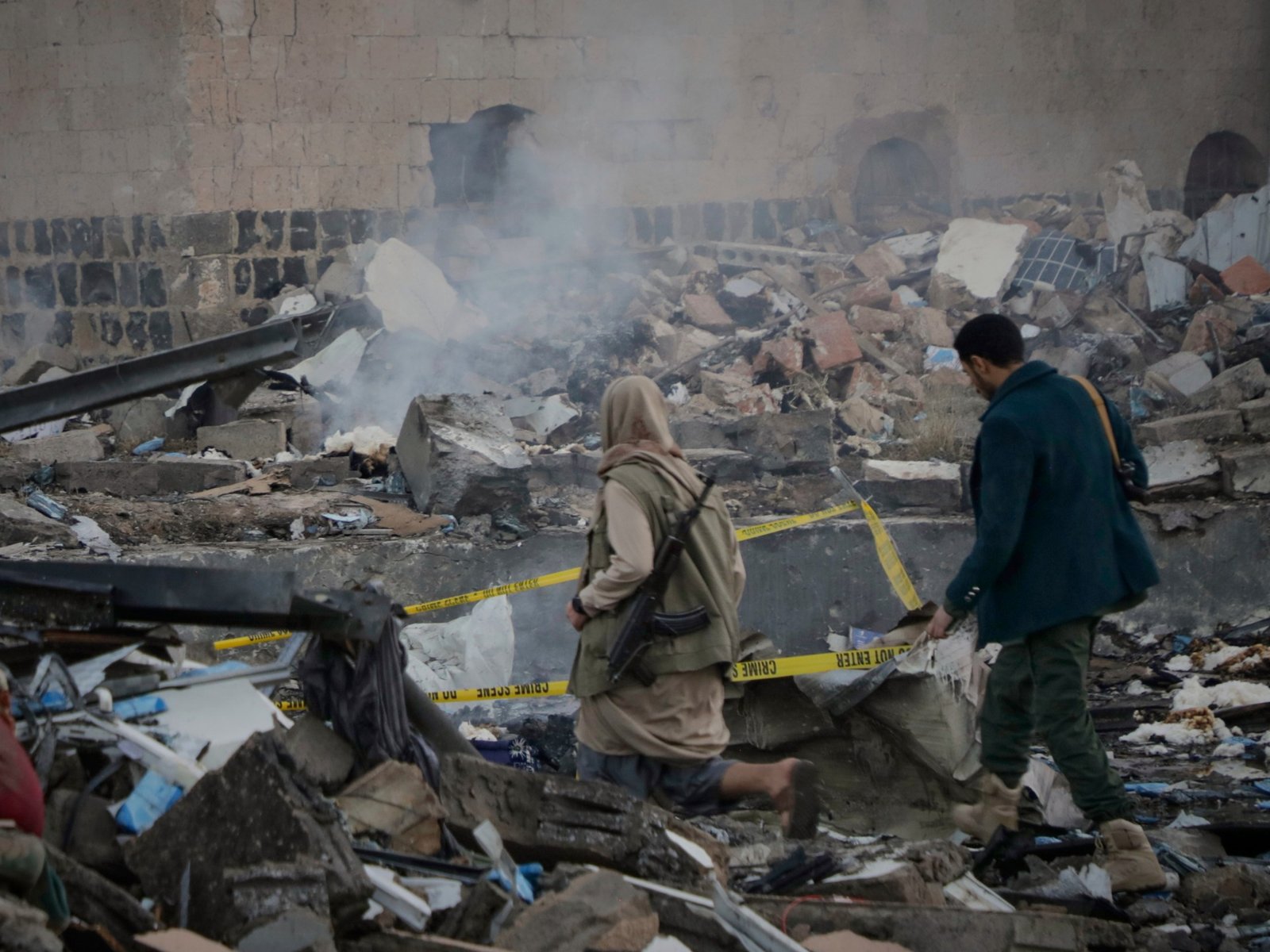Middle East
US hits dozens of Houthi targets in Yemen | Houthis News

US air strikes hit more than 40 locations across Yemen, including in Sanaa with at least seven people injured.
United States air strikes have hit more than 40 locations across Houthi-controlled parts of Yemen, including in the capital, Sanaa, according to local media affiliated with the rebel group.
Multiple residential homes and shops were damaged in the US attacks before dawn on Friday in the provinces of Saada, Marib, al-Jawf and Hodeidah, reported the Houthi-linked Al Masirah broadcaster.
Other targets included the Sanaa International Airport, which is used for both civilian and military traffic, and mountainous terrain north of Sanaa in Amran, where military camps and other installations are believed to be.
At least seven people were injured across the country in the US strikes, including at least one in Sanaa, Al Masirah reported. It also said that communication networks went down after the attacks.
The US military’s Central Command (CENTCOM), which now has authority from the White House to strike offensively in Yemen without pre-approval, did not immediately acknowledge conducting any raids.
The new campaign of air strikes, which the Houthis say has killed at least 57 people, started after the rebels threatened to restart targeting ships in the Red Sea over Israel blocking aid entering the Gaza Strip for almost a month.
War ‘must be avoided’
The United Nations Special Envoy to Yemen Hans Grundberg late on Thursday emphasised the urgent need for peace after a decade of conflict in the war-torn nation, asserting that stability is critical not only for Yemen but for the entire region.
“The resumption of a full-scale war in Yemen is not in anyone’s interest and must be avoided,” he said during a visit to Brussels, his office quoted him saying in a post on X.
Grundberg noted that diplomacy was key to de-escalation, calling for dialogue and mutual commitment among all parties.
“It is essential that the international community continues to take unified action to ensure a peaceful and sustainable solution for the Yemeni people,” he added.
The Iran-aligned Houthis have launched more than 100 attacks targeting ships in the Red Sea and the Gulf of Aden since November 2023, following Israel’s war on Gaza that began in October that year, saying the raids were in solidarity with Palestinians in the enclave.
During that period, the fighters sank two vessels, seized another, and killed at least four seafarers in an offensive that disrupted global shipping, forcing firms to reroute to longer and more expensive journeys around Southern Africa.
The Houthis also launched dozens of missile and drone attacks on Israel, killing at least one person and causing damage to buildings, including a school in Tel Aviv.
